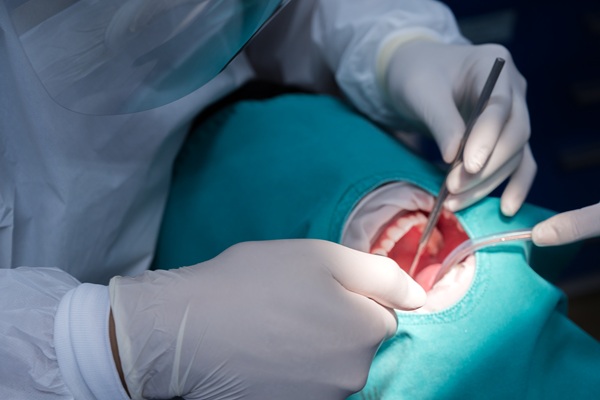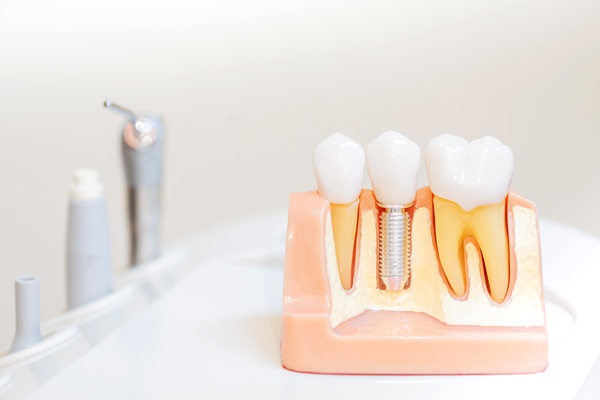What to Expect When Consulting an Oral Surgeon

You need an oral surgeon for complex dental procedures. This dental care provider can perform non-invasive and invasive dental treatments. Understanding what happens during the first visit can ease your anxiety. Here are the things you should look forward to when you consult your oral surgeon.
Oral and medical history
The oral surgeon will receive a referral from the patient’s dentist. Even so, the surgeon will still need more information about the patient’s past dental issues. The patient will need to give details about any surgeries and allergies. Telling the surgeon about the current health conditions is also necessary.
Over-the-counter and prescription medications must be on the list that the patient provides. The oral surgeon must also note the supplements that the patient takes. The information that the patient provides will help create the right treatment plan. It can reduce the patient’s risks for complications as well.
Full oral exam and diagnostic imaging
The oral surgeon will examine the patient’s teeth, mouth, jaw, and gums. Doing so will help the dental professional understand the patient’s dental health. Diagnostic imaging tests, such as CT scans and dental X-rays, can provide 3D images. These scans will serve as guides for the procedures. The surgeon may also need an impression of the patient’s jaws. This will involve biting down on a tray for a couple of minutes.
Discussion of the treatment plan
After the diagnosis, the oral surgeon will determine what treatment will suit the patient. Discussing the procedure can help the patient prepare for it. The patient must also know what the recovery period will be like. There will also be a dialogue about the type of anesthesia for the procedure. Most patients choose general anesthesia. This will allow the patient to sleep through the procedure.
The oral surgeon will talk about the advantages and disadvantages of every type of anesthesia. This will include the anesthesia for the procedure. The patient will also get information about the complications and risks after the oral surgery. Receiving these details can help the patient in scheduling the procedure.
Preparing for surgery day will also be part of the discussion. The oral surgeon may ask the patient to arrive on an empty stomach. This will prevent vomiting from nausea during surgery. Someone must drive the patient to and from the facility. There will also be post-operative instructions that the patient must follow.
The oral surgeon will ask the patient if there are other things to clarify before the procedure. If there are concerns or doubts, this is the right time to express them. The patient can ask about the foods that are allowed after the procedure. The oral surgeon will tell the patient what medications to avoid and take, as well as when to go back to normal daily activities.
The consultation with your oral surgeon can help prepare you for your scheduled procedure
Going through oral surgery is a huge decision. That is why it is important to talk to your oral surgeon first. The first visit will clarify any issue that you have about the treatment. The discussion can help you feel better about the scheduled surgery and your recovery. Working with your oral surgeon can lead to the possible success of your dental surgery.
Request an appointment here: https://spectrumsurgical.net or call Facial Spectrum at (816) 524-4334 for an appointment in our Lee's Summit office.
Check out what others are saying about our dental services on Yelp: Oral Surgery in Lee's Summit, MO.
Recent Posts
Dental implants represent a durable and aesthetically pleasing solution for replacing missing teeth. Understanding the proper care for dental implants remains essential to ensure longevity and optimal function. Adhering to recommended practices significantly reduces the risk of complications, preserves oral health, and maintains the attractive appearance and comfort associated with implants. By implementing consistent maintenance…
The jawbone is the part of the face that holds many essential elements together, such as the teeth, ligaments, and muscles; however, bone grafting may sometimes be necessary if the jawbone is too weak to perform these tasks. A person’s jawbone can deteriorate over time, whether due to age, genetics, poor oral health, cancer, or…
Finding lasting relief from issues such as misalignment and facial asymmetry can involve specialized procedures. Fortunately, corrective jaw surgery is a reliable option for addressing these concerns. A dental specialist realigns the upper or lower jaw during this process to promote better function and comfort. Although the procedure can benefit health and appearance significantly, a…
Many individuals seek rhinoplasty to enhance facial harmony, improve nasal function, or correct structural abnormalities. As a surgical procedure that reshapes the nose, rhinoplasty can address aesthetic concerns as well as breathing difficulties caused by structural defects such as a deviated septum. Understanding the consultation process, surgical techniques, and what to expect from the recovery…


